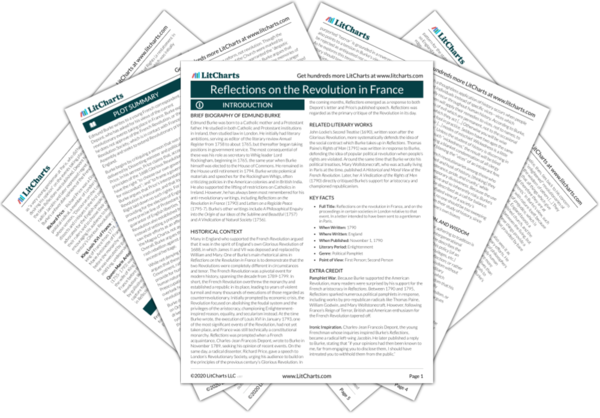In Reflections, Burke sometimes uses the symbol of a building to illustrate the contrast between reform and revolution: whereas a reformer would repair an aged or damaged building without completely altering the underlying structure, a revolutionary would tear it down to its foundations and build something new from the ground up. Burke especially favors this symbol when he describes his own inclination to preserve the best of what has gone before—should he ever be in a position to enact reforms, he explains, he would follow the example of his ancestors and make “the reparation as nearly as possible in the style of the building.” Burke views reform much more favorably than revolution, which he sees as ruinous, laying waste to vital institutions of society.
Buildings Quotes in Reflections on the Revolution in France
Section 7 Quotes
The science of government being therefore so practical in itself, and intended for such practical purposes, a matter which requires experience, and even more experience than any person can gain in his whole life, however sagacious and observing he may be, it is with infinite caution that any man ought to venture upon pulling down an edifice which has answered in any tolerable degree for ages the common purposes of society, or on building it up again, without having models and patterns of approved utility before his eyes. […] The nature of man is intricate; the objects of society are of the greatest possible complexity; and therefore no simple disposition or direction of power can be suitable either to man’s nature, or to the quality of his affairs. When I hear the simplicity of contrivance aimed at and boasted of in any new political constitutions, I am at no loss to decide that the artificers are grossly ignorant of their trade, or totally negligent of their duty.










